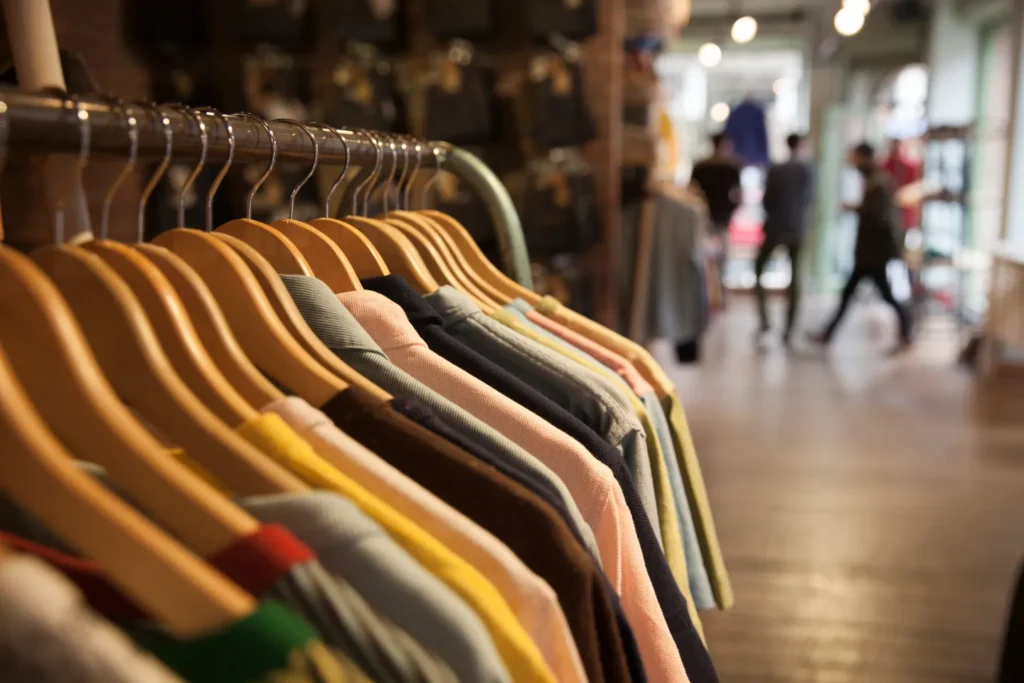Nigeria’s fashion and apparel industry is on a remarkable growth trajectory, with projections indicating it will generate up to US$10 billion in revenue by 2025. This forecast reflects strong local and international demand, a rapidly expanding population, and the increasing global recognition of Nigerian fashion talent.
The market growth is largely driven by urban youth culture, digital retail platforms, and an explosion of creativity in the local fashion scene. Analysts say this growth could position Nigeria as one of Africa’s leading fashion economies and a critical player in global textile and apparel value chains.
Youth Influence and Urban Culture Fueling Demand
Nigeria’s demographic profile — with over 60% of its population under the age of 25 — is a key driver of the booming apparel sector. Young Nigerians are not only significant consumers but also creators, pushing boundaries in design, style, and brand storytelling. As streetwear, Afrocentric fashion, and gender-fluid designs become increasingly popular, local designers are gaining both commercial traction and cultural influence.
Furthermore, the rise of social media and celebrity influencers has intensified demand for new fashion trends, driving frequent wardrobe turnover among younger consumers. The visibility of Nigerian fashion on global platforms such as Instagram, TikTok, and international runways has also contributed to growing global interest.

Digital Commerce and Local Production Are Game Changers
E-commerce has become a major engine of growth in Nigeria’s apparel industry. Online marketplaces such as Jumia, Konga, and smaller niche platforms have given emerging fashion brands a direct route to market, bypassing traditional retail limitations. This shift has increased accessibility to a wider range of clothing styles and price points across urban and semi-urban areas.
Simultaneously, there is a renewed focus on local production. Nigerian fashion entrepreneurs and manufacturers are investing in homegrown textile production, tailoring hubs, and sustainable sourcing. These efforts aim to reduce dependence on imports, create jobs, and establish a resilient value chain within the country. Government-led policies and grants supporting small and medium-sized enterprises (SMEs) in fashion are further fueling growth.
Export Potential and International Recognition
Beyond domestic consumption, Nigerian fashion is also attracting global buyers. Designers such as Lisa Folawiyo, Orange Culture, and Kenneth Ize have gained international acclaim, showcasing at fashion weeks in Paris, Milan, and New York. This global recognition has unlocked export opportunities, especially to African diaspora communities and international boutiques seeking African luxury wear.
Fashion export value is expected to rise significantly in the coming years, especially if trade barriers and logistical bottlenecks are addressed. Stakeholders advocate for stronger support in the form of tax incentives, export financing, and improved infrastructure to help Nigerian fashion brands scale globally.
Challenges Remain: Infrastructure, Counterfeiting, and Import Dominance
Despite the optimism, Nigeria’s apparel market faces hurdles. Infrastructure deficits — such as unreliable electricity, inadequate logistics, and poor road networks — hinder efficient production and distribution. In addition, the flood of cheap imported clothing, often second-hand or counterfeit, continues to undercut local brands on price.
Regulatory agencies and industry leaders are calling for stricter enforcement of import laws, standardization of quality, and support for branding to help Nigerian fashion companies remain competitive. There is also a push for greater investment in fashion education and technical training to ensure the industry has the skilled workforce it needs.
Economic Impacts and Job Creation Potential
If the projected US$10 billion revenue is realized by 2025, the apparel industry could become a significant contributor to Nigeria’s non-oil economy. The sector already supports hundreds of thousands of jobs — from tailors and textile workers to designers, stylists, photographers, and digital marketers. With the right policy support and private-sector investment, this figure could grow exponentially.
Moreover, the rise of fashion tech — including 3D design software, AI-driven style recommendations, and virtual fitting rooms — presents fresh opportunities for tech-savvy Nigerian youth to innovate within the sector.
Towards a Global Fashion Powerhouse
Industry stakeholders believe that with the right investment, policy alignment, and creative freedom, Nigeria can evolve into a global fashion hub — not only leading in design innovation but also in ethical production and sustainable fashion practices.
As 2025 approaches, the apparel sector is poised to become not just a cultural force but a cornerstone of Nigeria’s economic diversification and job creation strategy.







